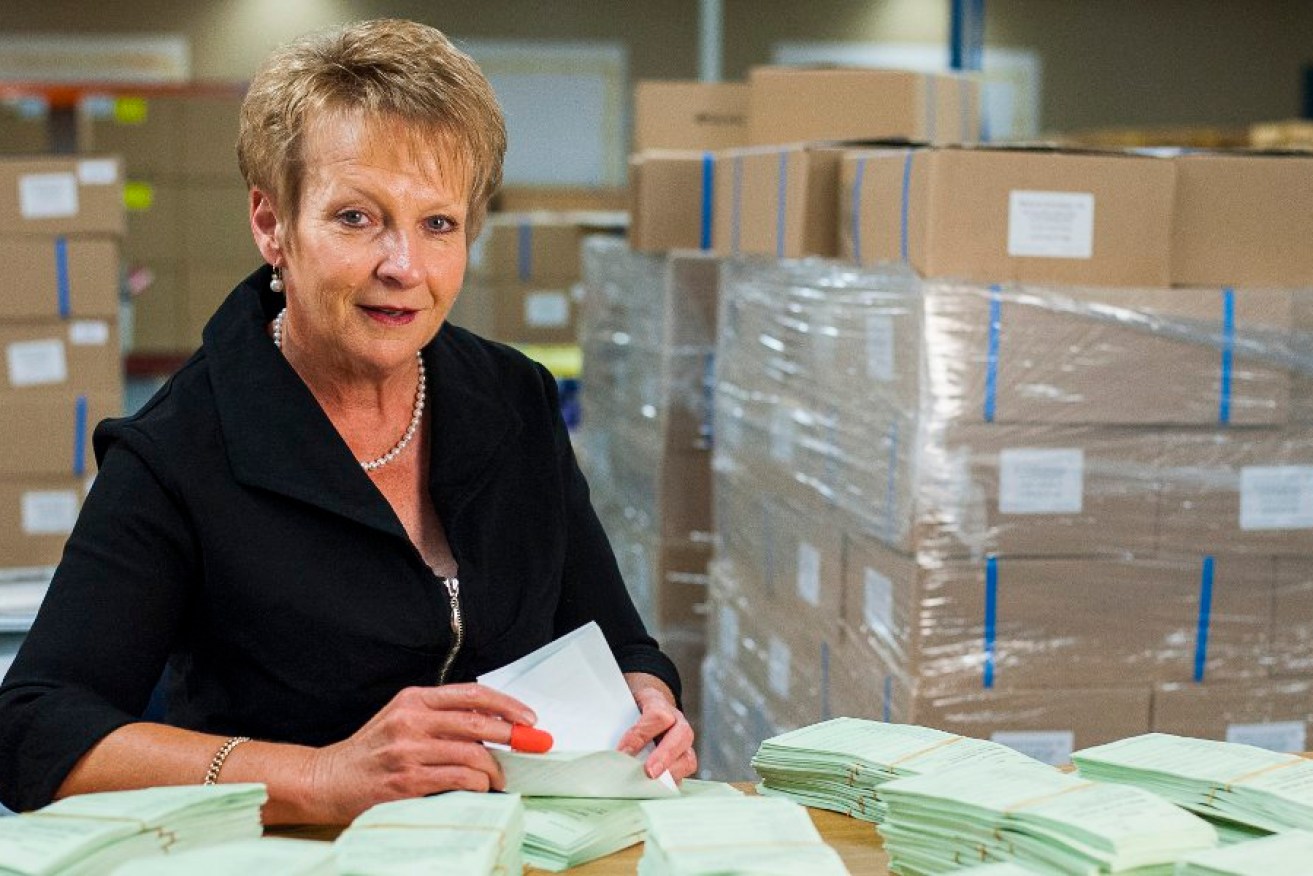Computer voting likely at next election

Electoral Commissioner Kay Mousley. Photo: supplied.
South Australia looks set to move to partial electronic voting by 2018 with the state’s electoral commissioner hoping to introduce computer-voting terminals in some booths next election.
“As all things, change is inevitable – it’s just a matter of when it might happen,” Electoral Commissioner Kay Mousley told InDaily yesterday.
“There will have to be changes in how we go along to vote, and I would suggest that there’ll be some form of alternate voting methods.”
Mousley thinks she can introduce the new voting terminals – computers with a printer attached – without legislative change. She just needs budget approval from parliament.
The terminals would be put in early voting centres at the next election as part of a test ahead of a gradual full role-out to replace the state’s 700-plus ballot boxes.
“Electors can go into an early voter centre, they can sit at a terminal, put on some headphones and they’ll be talked through the process,” she said.
“There’s also a visual on the screen as well. It will lead the elector through the different processes to mark their ballot papers.”
The ballot paper would be produced in hard copy via an attached printer. The voter would place the paper in a declaration envelope, and then into a ballot box.
The roll-out wouldn’t be cheap but a gradual roll-out would stagger the cost, Mousley said.
The system is known as alternate voting rather than electronic voting, because the vote is still recorded and counted via a paper ballot. That’s cheaper and less risky than a computer recording the vote on its hard-drive or uploading it to the internet, Mousley said.
The advantages of the system include that it prevents unintentional informal votes and allows ballot papers to be marked very clearly.
South Australia wouldn’t be a pioneer in the technology. The ACT has been using some forms of computer-assisted voting since 2001, Victoria rolled the system out to pre-poll booths in 2006, NSW has remote voting over the internet, and in Tasmania overseas electors can vote via email.
“I think just the general swing with what is happening in other states will generate some interest and hopefully a move in another direction, but it’s a matter of how quick,” Mousley said.
She also touched in electoral reform, confirming she had raised some concerns with parliamentarians during a debate late last year on the introduction of optional preferential voting.
Mousley said she told MPs the commission could roll out optional preferential voting at the 2014 election but it would add significantly to the amount of time taken to tally the results in the Upper House – possibly adding two weeks to the time between polling day and the release of results.




